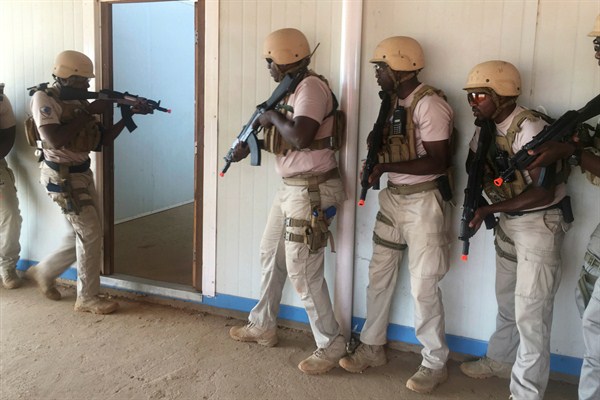Last month, United States Africa Command organized the annual Flintlock military exercises in Niger, convening nearly 2,000 special forces troops from 20 countries, eight of them African. The exercises date back to 2005 and are intended to bolster African militaries’ ability to “counter violent extremist organizations, protect their borders and provide security for their people.”
By serving as this year’s host, Niger reinforced its image as a crucial U.S. counterterrorism partner—an image the country has been cultivating for years as it has responded to security threats emanating from neighboring Mali, Nigeria and Libya. Niger’s military partnerships with the West have assumed new visibility in the seven months since four U.S. soldiers were killed in an ambush outside the Nigerien village of Tongo Tongo, near the border with Mali.
But militant groups are not the only threat to Niger’s stability. While they address the security concerns around them, authorities have also been trying to deal with a domestic challenge: unrest sparked by anger over a finance law that has been blamed for hikes in taxes and the cost of basic services, including transportation. The law led to rioting last October that injured more than 20 police officers, according to Niger’s Interior Ministry, as well as large-scale protests to ring in 2018. Since then, the government of President Mahamadou Issoufou has restricted protesters’ ability to stage rallies, but activists have continued to take to the streets, resulting in altercations with security forces and raids targeting civil society organizations that observers say are becoming increasingly brazen.

